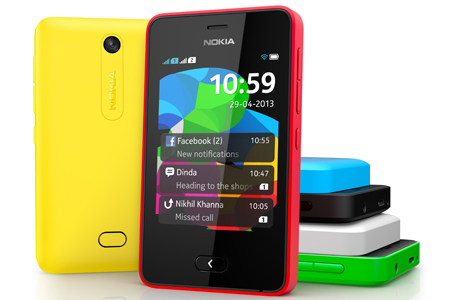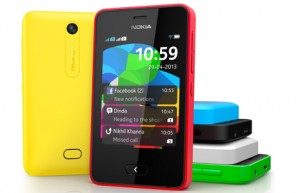Nokia has a new touch screen Asha phone out today; the 501. It is being launched in New Delhi, India, and would be sold for $99 before taxes and subsidies. It is targeted at emerging economies, and will be available in 90 countries. According to Nokia, “The Asha 501 is powered by a new software platform, which fully leverages Nokia’s investments in Smarterphone, which it acquired in 2012 and builds on the best aspects of Series 40 to create something fresh and innovative.”
“The result is an evolutionary operating system that is fast, responsive and easy to use. The Asha platform is faster, more responsive and more flexible too. This means new features and functionalities can be anticipated with future updates. Developers will be able to create apps for the Nokia Asha 501 that will also be compatible with future Asha platform-based devices.”
“The Asha 501 will be the first Nokia device at such a low price point to use a micro-SIM. It will come in a single-SIM variant and a Dual-SIM version with Nokia’s unique Easy-Swap SIM technology, which allows people to switch SIM cards without having to power off the device.”
“It features a 3.2-megapixel camera, WiFi, a lock screen with a glanceable clock and the 3-inch capacitive screen is made out of hardened glass. There’s 4GB of internal memory and support for a micro-SD card up to 32GB. The battery life offers an incredible 48 days in standby and 17 hours of talk time – that means you could talk from 7am to midnight non-stop.”




